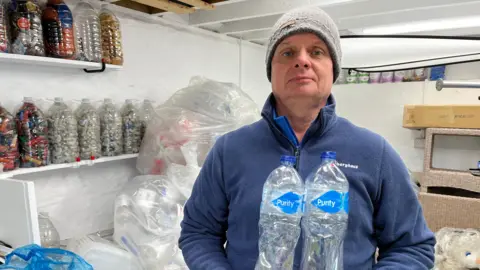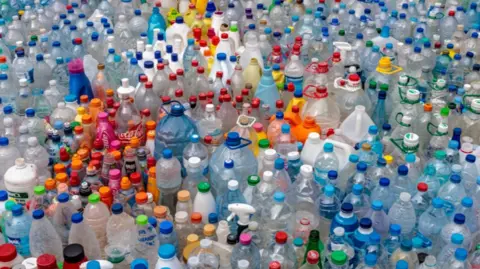Plastic bottle types found outnumber fish species
 BBC
BBCA marine biologist has recorded more types of plastic bottle washed up on Guernsey's beaches than the total variety of fish in UK waters.
In the last seven years Richard Lord said he had logged more than 330 types - the same number as the total of different fish species recorded by the UK government.
He said: "Plastic water bottles are a single use item that get discarded in unimaginable amounts and it litters the environment all over the world."
Mr Lord said his research was a "collaborative effort" which wouldn't be possible without a dedicated group of beachcombers.
 Richard Lord
Richard LordThe team has collected plastic bottles originating from 69 countries, including China, Dubai, Russia, South Korea, Syria and Turkey.
Mr Lord said: "We can say confidently that more plastic bottle brands have been recovered from the English Channel than there are fishes in the British Isles.
"We will probably be able to confirm in the future there are more plastic water bottle brands [than species]. They estimate a million water bottles are used every minute of the day throughout the world."
Scientists have previously said there are more than 171 trillion pieces of plastic estimated to be floating in the world's oceans.
'Dumping at sea'
Mr Lord said he believed a "fair proportion" of the litter is from "ship crews illegally dumping their surplus rubbish at sea".
"Certain ports don't have accessible [waste] facilities or the cost for ships is too much so they'd rather reduce the cost by dumping at sea which then puts the cost in the public realm, and beach cleaners and communities have to suffer the consequences", he said.
"If we can stop the practise then we have cleaner beaches and a safer environment."
Follow BBC Guernsey on X and Facebook. Send your story ideas to [email protected].
